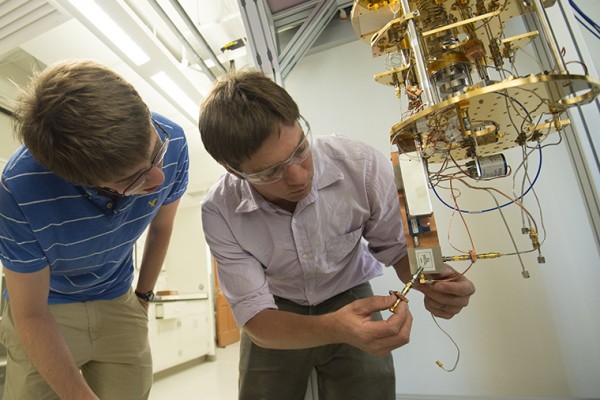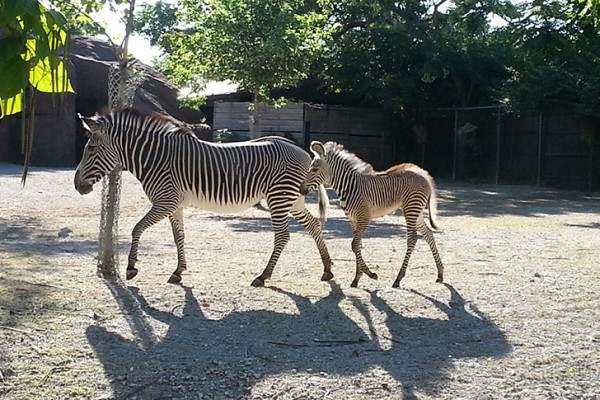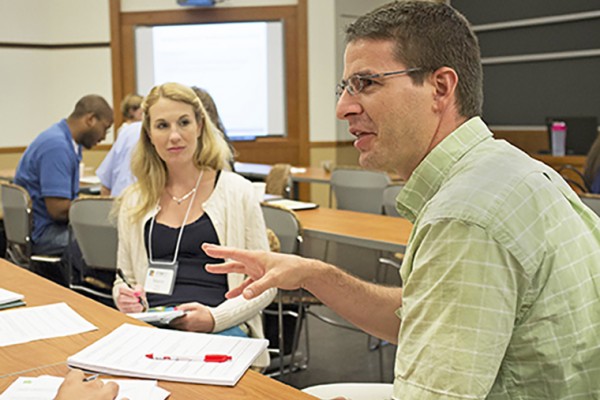McCune to direct Mellon Mays Undergraduate Fellowships
Jeffrey McCune, PhD, has been named director of the Mellon Mays Undergraduate Fellowship Program at Washington University in St. Louis. Funded by the Andrew W. Mellon Foundation in New York, the program aims to increase diversity in higher education by encouraging talented but underrepresented students to pursue doctorates in the humanities and social sciences.
Sheren presents at street art conference
Ila Sheren, PhD, assistant professor of art history and archaeology in Arts & Sciences at Washington University in St. Louis, made a presentation at the International Conference on Street Art and Urban Creativity in July in Lisbon, Portugal.
Unintended consequences: More high school math, science linked to more dropouts
Washington University researchers have found that courses intended to better prepare high school graduates for college also drive some students to drop out. They report that policies increasing the number of required math and science courses are linked to a higher dropout rate.
Finding quantum lines of desire
What paths do quantum particles, such as atoms or photons, follow through quantum state space? Kater Murch of Washington University in St. Louis has used a superconducting quantum device to continuously and repeatedly record the paths the device took through quantum state space. From the cobweb of a million paths, a most likely path between two quantum states emerged, much as social trails emerge as people round off corners or cut across lawns between buildings. The research is featured on the cover of the July 31 issue of Nature.
Baby zebra is latest success in university-zoo research partnership
The recent birth of a female Grevy’s zebra foal at the Saint Louis Zoo marks another milestone in a long-running Washington University in St. Louis research partnership that is making significant contributions to the preservation of Grevy’s zebra and the equally endangered African wild ass.
Schaal named to national Foundation for Food and Agricultural Research board
Barbara Schaal, PhD, dean of the Faculty of Arts & Sciences at Washington University in St. Louis and the Mary-Dell Chilton Distinguished Professor, is one of 15 scientists from academia and industry named to the new Foundation for Food and Agricultural Research. U.S. Agriculture Secretary Tom Vilsack announced the foundation July 23.
Expecting to teach enhances learning, recall
People learn better and recall more when given the impression that they will soon have to teach newly acquired material to someone else, suggests new research from the Department of Psychology in Arts & Sciences at Washington University in St. Louis.
Maffly-Kipp receives prize for research in African-American religion and history
Laurie Maffly-Kipp, PhD, a professor in the humanities in Arts & Sciences and in the John C. Danforth Center on Religion & Politics at Washington University in St. Louis, received the 2014 James W.C. Pennington Award for her research on African-American religion and history.
STEM Faculty Institute on Teaching a good FIT
Washington University in St. Louis’ Teaching Center brought together faculty from Arts & Sciences and the School of Engineering & Applied Science for the inaugural Summer STEM Faculty Institute on Teaching (STEM FIT), held June 17-19 in Seigle Hall. Faculty developed strategies for incorporating evidence-based teaching practices to improve student learning and encourage undergraduates to persist in STEM majors.
Federal regulatory spending rises most at agencies funded by industry fees
While tight budgets are constraining regulatory spending at many federal agencies, those that garner funding from industry fees are using these revenue streams to fund substantial increases in regulatory programs and staffing, according to an annual
report that examines the U.S. budget. The report was released by the Weidenbaum Center on the Economy, Government and Public Policy at Washington University in St. Louis and the George Washington University Regulatory Studies Center.
View More Stories



